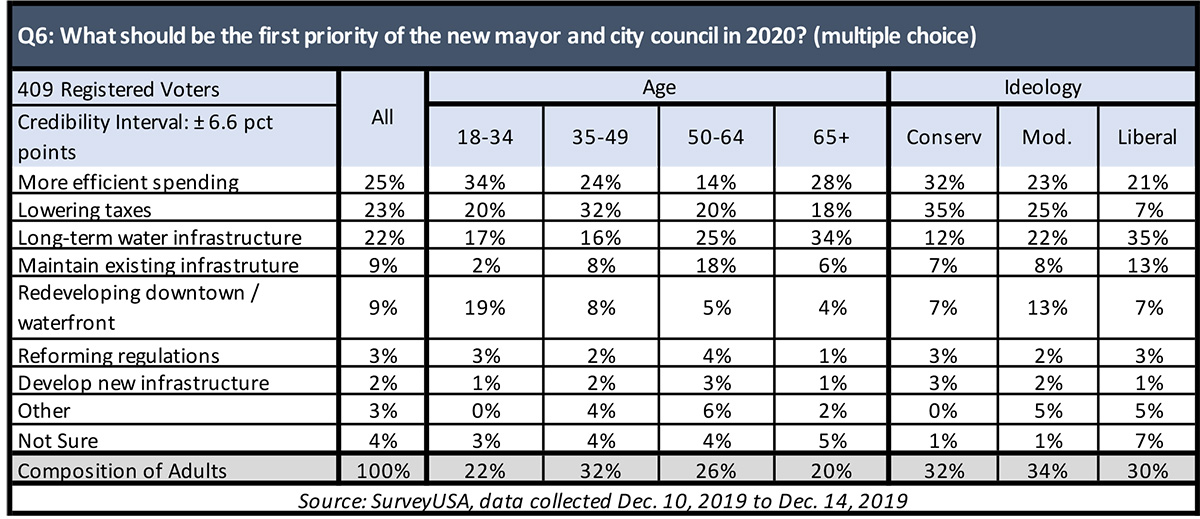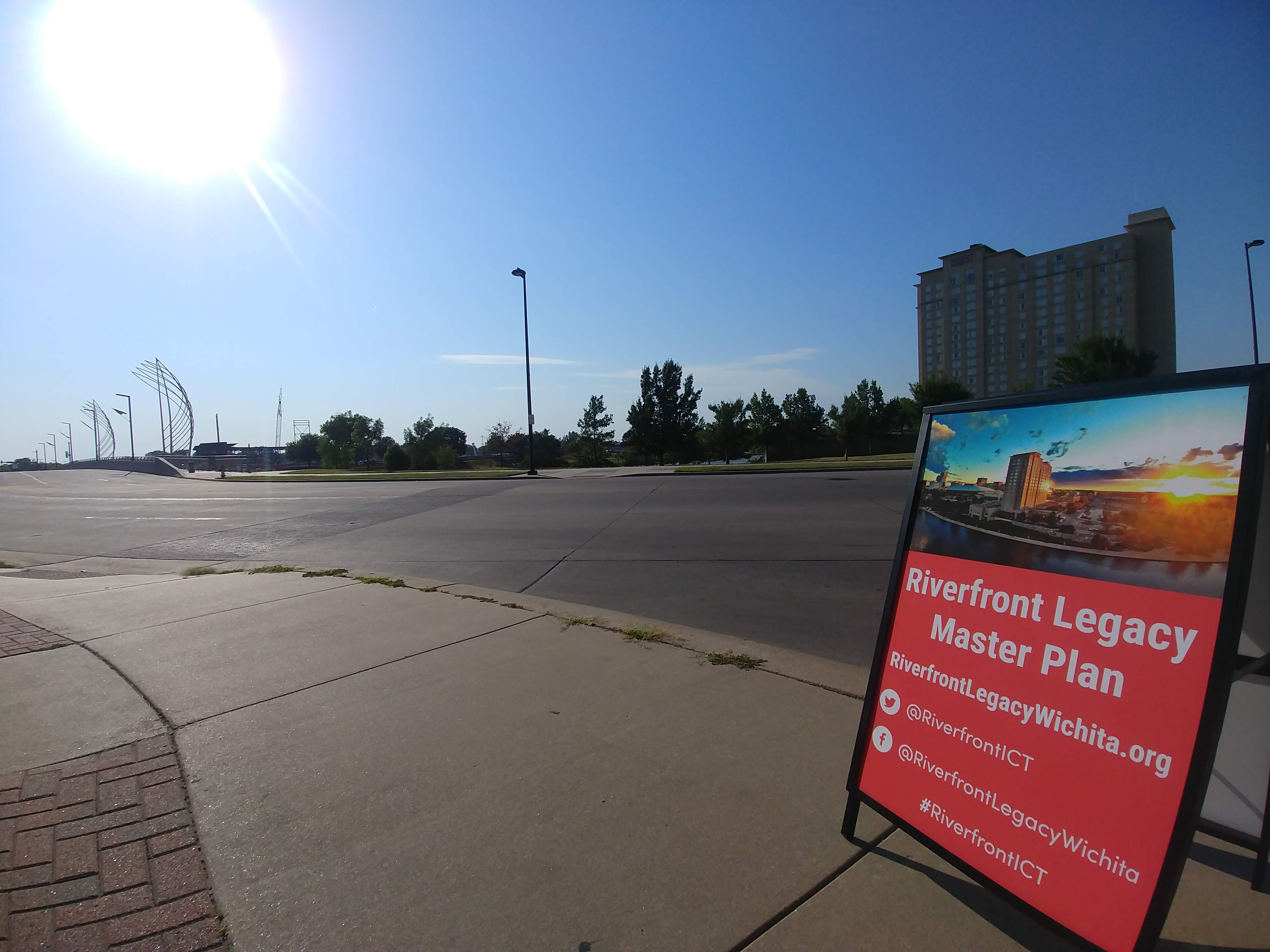A new survey shows voters oppose a tax increase to pay for the Wichita riverfront development project being pushed by downtown business and elected officials. Perhaps even more intriguing, voters also don’t think the riverfront development is a high priority for city council members and the mayor.
The survey, conducted by SurveyUSA on behalf of Kansas Policy Institute, the parent company of the Sentinel, asked a number of questions regarding taxing and spending in the city of Wichita. 60% of respondents responded they would not be willing to pay higher taxes for Wichita riverfront development and only 29% said they would accept a tax increase.

In a breakdown by age groups, those 18-34 were the voters favoring a tax increase (49% yes vs. 46% no). The majority of all other age groups and all self-described political ideologies (conservative, moderate, and liberal) oppose tax increases for riverfront development.
Asked “what should be the first priority of the new mayor and city council in 2020,” only 9% of Wichita voters selected ‘redeveloping downtown/waterfront’. ‘More efficient spending’ is voters’ #1 choice (25%); ‘lowering taxes’ was the #2 option at 23% and 22% of voters selected ‘long-term water infrastructure.’
The Sentinel has reported on the controversy surrounding the Riverfront Legacy Masterplan for months now. The price tag of the project is slated to be over $1 billion dollars. On multiple occasions, the Sentinel has asked city officials if they would back a vote on either approving the development or using a sales tax increase. So far, Wichita Mayor Brandon Whipple and City Council rep Cindy Claycomb have signaled that they back a vote on the development.
At an event last week sponsored by KPI, Wichita residents came out in force to hear a presentation about the Wichita economy from two economists (Art Hall from the University of Kansas and Samuel Staley at Florida State University) and the Greater Wichita Partnership, a key supporter of the Riverfront Legacy Masterplan. The standing-room-only event was also one of the first occasions where data regarding Wichita economic development was presented that was not approved Riverfront Legacy Masterplan supporters and the meeting wasn’t controlled by them.
A key takeaway from the night was that local development in one area of Wichita draws resources from another part of the city. As Hall noted, “You have natural growth [within a city], but if you apply enough resources you can redirect that growth, but you aren’t necessarily getting any net growth. You just changed where it is.”
Comments during the Q&A session indicated that the audience agreed with Hall’s analysis, and that may partially explain voters’ opposition to government subsidies. When asked whether they agree or disagree with local government using taxpayer money to provide subsidies to certain businesses for economic development, 51% of voters said they disagree, 29% agree, and 19% are not sure. Voters show high levels of disagreement with subsidies across all age groups and ideologies.

Many questions were also raised about the lack of transparency from city leaders at the KPI event. The frustration was apparent but so was a lot of confusion and questioning about city decisions, which may at least partially explain why 52% of voters think Wichita city officials spent money inefficiently over the past few years; only 26% think money was efficiently spent and 22% are not sure.

A major motivator for the Riverfront Legacy Masterplan according to city boosters is a new convention center to replace Century II. The Sentinel reported back in November about the market saturation in convention center space across the country. Participants at the KPI event seemed opposed to a new convention and want Century II updated instead, but the survey shows they aren’t willing to pay higher taxes for expansion or renovations. 57% are opposed to higher taxes, just 33% are willing to pay more expansion or renovation, and 10% aren’t sure.

At the KPI event, San Staley with FSU underscored some of the major concerns of convention centers, notably that they do not, in fact, drive economic growth.
“Some infrastructure is really important. There is a lot of other stuff that isn’t. I hate to say it but I have yet to find outside of New York, Chicago, and Orlando a metropolitan area where investment in convention centers have significant economic development,” said Staley.



